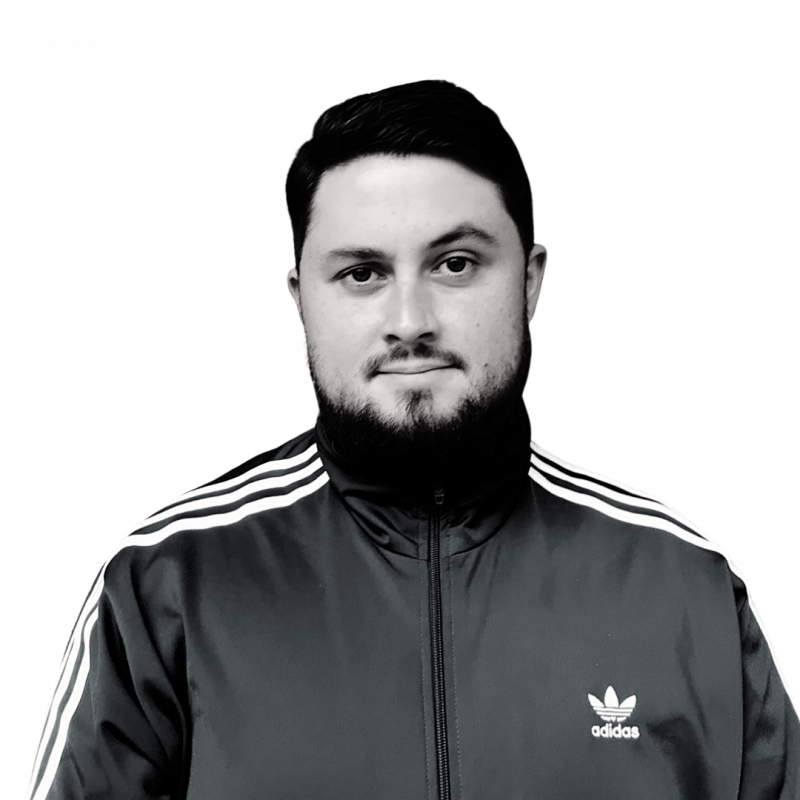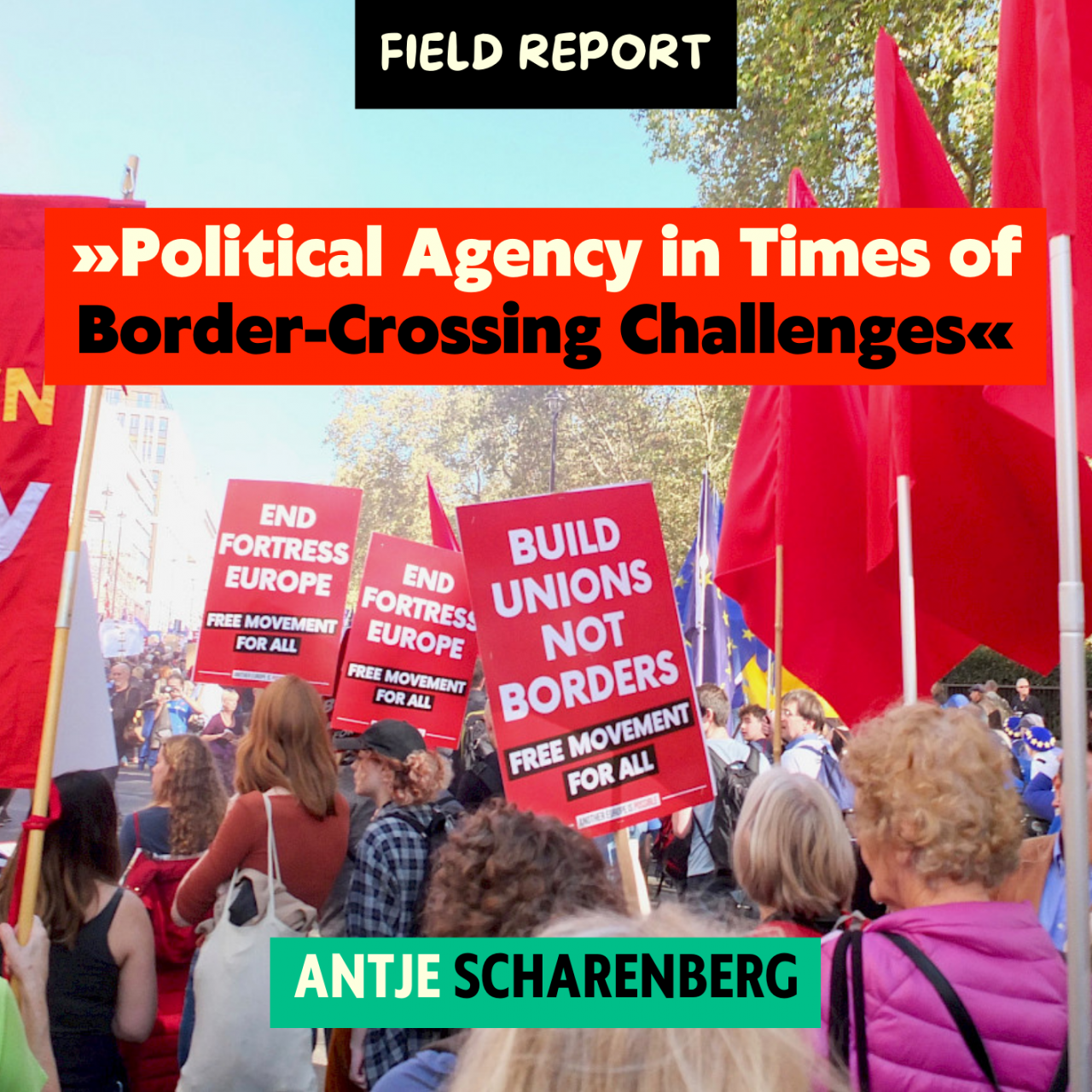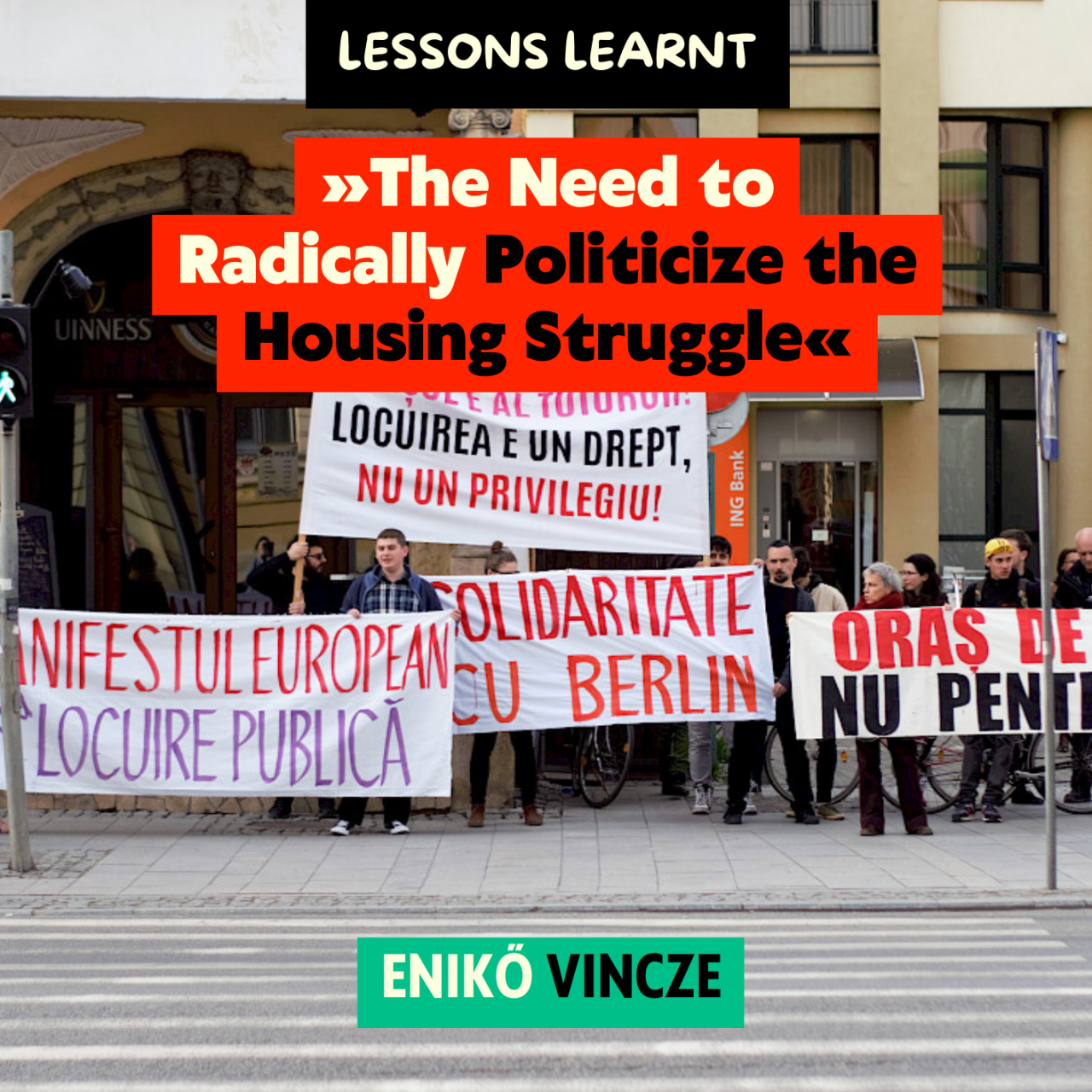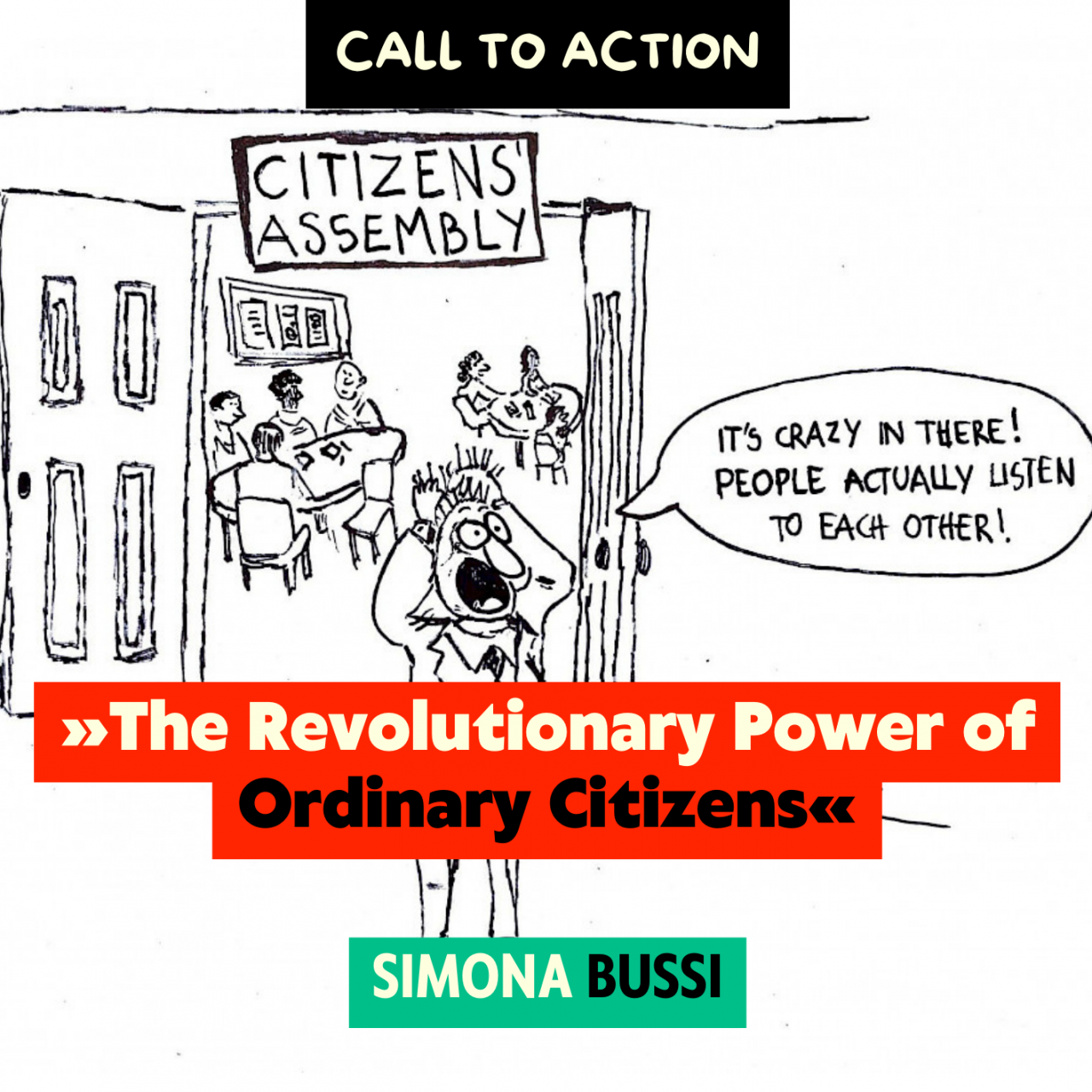I was invited here today to talk about the need to expand suffrage and realize full political rights regardless of national citizenship. I was invited because the organizers of this fine event thought that since I most recently took part in Deutsche Wohnen und Co. Enteignen’s foreigner working group, Right to the City, and since I previously took part in an initiative called Solidarity City Berlin that I might have something smart and meaningful to say about migrants and suffrage. After all, both initiatives called into question that place of migrants and demanded that the borders that confine suffrage be abolished so that scores of ordinary people who currently experience history on the sidelines can step into the field and help steer the ball in a direction better than this place right here.
»Laws to serve society, not society to serve laws« – A Case Study About the Deutsche Wohnen & Co. Enteignen Campaign & the Need to Reframe the Question of the Migrant Suffrage
Migrant Suffrage as Part of a Broader Project of Empowering Ordinary People
But, I do not want to begin this discussion from the perspective of the letter of the law. Doing that would put the law on a pedestal and would make it seem that laws are to be served by society, and not the other way around.
Instead, I wanna begin our approach to the question of expanding political participation through the lens afforded by a far more fundamental crisis of care that is experienced by social groups not limited to migrants.
Everywhere I look, everywhere I go, I am confronted by this overwhelming incapacity of ordinary people to be able to change the world around them. Take this keynote as an example - it was prepared in night-shifts and lunch-breaks. With a toddler to take care of and a day care facility that has no resources left to probably function at the end of the second year of a pandemic.
Hence, by ordinary people, I mean teachers, daycare instructors, school kids, university students, doctors, scientists, garbage collectors, flight attendants, food couriers, programmers, janitors, mail carriers, engineers, nurses, radiologists, even lawyers – all kinds of people are experiencing this tremendous crisis of care as they are not to able “to care as they would like to,” as my dear friend and feminist researcher Manuela Zechner puts it.
What do I mean by that? It means being able to care for themselves, their loved ones, or their communities by being able to afford healthy food, being able to pay the heating and pay the rent, getting a bed at the hospital (let alone a nurse to take care of them); having childcare that feels good to drop your children off at or elderly care you feel good leaving your parents at; and being able to have the time to enjoy a life that is all the more precarious and fleeting.
It also means being able to care about problems in ways that feel empowering and transformative, not superficial and defeating. Nothing speaks to this greater than the planetary crisis provoked by ecological collapse.
Rather than democratic protagonists, in my everyday life I mostly encounter unwilling hostages who experience a daily calamity brought on by an immovable process that they cannot shrug, a direction that if left unchanged, will lead to our collective doom.
Once again, to follow the insights of my friend and comrade, Manuela Zechner, to care as we would like to then is immediately related to the problem of power.
When I talk about the problem of expanded suffrage then, I want us to begin from this actual context, from this crisis of care and the problem of power that is broadly shared by most people, rather than an abstract legalism that functions only to reinforce this very impasse.
Because it is not that voters, in this context from where I am speaking, have all the power, and we migrants and foreigners have none. And it's definitely not, as the right-wing would have us believe, that voters have no power and migrants have all the power.
What my everyday encounter with people around me makes quite clear is that most voters are powerless themselves to determine the direction of change – despite the fact they vote.
The Crisis of Democracy in Berlin
What could make this case more clearly than the campaign to expropriate corporate landlords. This is a campaign that won 59 percent of the vote. This, despite the fact that 25 percent of tenants – 25 percent of ordinary people who give their hard earned money to hedge funds that give that money to investors in exchange for the temporary right to house themselves and their loved ones – were blocked from having a say in the process because of residency and citizenship status. Even before such a disadvantage, the campaign won more than any party. It took place in a context of political, social, and ecological crisis, in which no single party program was able to secure consent, and yet, this demand to expropriate and socialize housing secured 59 percent of the vote. 59 percent of people understood that this was the best way to lower rent, the best way to keep their communities in place, the best way to have more money to do what they want with the people they want – it was the best way to have more say in how housing should look like. An intervention in the direction of change.
And yet, despite this signal fire cast into the bleak abyss of crisis – we have governmental impasse. We have Mayor Giffey defending the real estate lobby by kicking the can two years down the road in the hope that between now and then the anger will subside and attention will be diverted.
DWE has shown that politics is not driven simply by parties and their voters. Over the course of the campaign, players emerged like real estate and financial lobbies, players who moved a great deal of wealth and resources, and these players clearly pressure parties as well – sometimes more than voters.
If society is going to have any chance at all, it will hinge on the capacity to redistribute “power anywhere there’s people,” as the Black Panther Fred Hampton would have said. We need to build power in the state because the state has power over social processes. At least it can. When the right people are in power and when people are ready to flex their power outside the state in the same way capital does when it says it's gonna move our money.
Huey Newton, a founder of the Black Panther Party, said that power is the ability to define phenomena and make them act in a desired manner. And this is what I saw in my participation through Deutsche Wohnen und Co. Enteignen. I saw ordinary people define phenomena in common – gentrification, racism, financialization – understandings that people said didn’t exist ten years ago – and developing a pressure that was forcing it to change. And this wasn’t done through the mobilization of money that dictated people do things in exchange for a wage. It was through free, democratic association, through self-organization on the off-time people had from their work.
That referendum result – that incredible, hardwon result – that was only possible through incredible degrees of organization.
I cannot tell you how many meetings, how many embraces, how many fights, how many tears, how many one-on-one conversations, how many signatures, how many parties, how many burnouts, how many recoveries, how many rallies, how many mike checks, how many speeches written, how many doors knocked, how many minds changed, how many hearts moved, how many stories told that it took to make that happen, to introduce that change of discourse and that change in the direction of society’s travel. This is where I saw democratic protagonism.
This intervention was the product of an organization of ordinary people over years. And yet, so much of that process was also carried by migrants and foreigners. It is important not to underscore any single actor of this incredible process, but instead to understand this as an emergent outcome made possible by the interaction of all its parts. And migrants and foreigners were operating in so many of these parts, increasing the organizational resources the campaign pooled, as it expanded the labor-power dedicated to the reproduction of the organization; expanded the number of people collecting signatures, putting posters, and organizing events; developed entirely novel structures like a Cheerleading working group – a working group first conjured in the second signature collection phase of the campaign that came to be an icon of the campaign and a darling of the media; and produced, incredible-life sustaining cultural productions that were renown across the kiezes of Berlin.
Strategic Lessons of the Deutsche Wohnen & Co. Enteignen Campaign
And yet, all of this democracy in movement is in danger in the governmental process since the vote. Why then must we expand the right to vote, if voting doesn’t seem to do a thing? Because the concentration of power in the hands of wealthy elites has only functioned to deteriorate our capacities to reproduce society and for ordinary people to care for their loved ones and communities.
To stay with the example of the expropriation campaign: If DWE shows the limit of voting, Giffey shows the power of the state apparatus. It is a power that functions in relation to the forces around it. It is not some kind of absolute power, but nevertheless: a mayor like Giffey has access to resources, can regulate markets to a certain degree and can fight for or against a legislation that allows for expropriation. And at this point I would like to go back to the question of care: because the state can also allocate resources to schools, child-, elderly, and health care. The state can create conditions in which we all are able to struggle for our desires.
Since the access to this power is regulated through the process of voting, it obviously matters who is allowed to vote. BUT:
If ordinary people are to stand a chance in a planetary crisis where capital is unwilling to do anything that denies its monopoly of power – either in the case of the Enteignen or in the case of the TRIPS waiver – then this monopoly must not be negotiated with but broken. And this is only possible when ordinary people organize themselves in their communities and at their workplaces in ways that threaten the capital's capacity to generate or move money.
Indeed, DWE shows that the power of ordinary people to even define what will be on the ballot takes great degrees of organization and unparalleled commitment, sacrifice, and especially joy by ordinary people. We must move away from an understanding of suffrage’s expansion that centers the perspective of the law, and towards an understanding of suffrage’s expansion as part of a broader democratic project aimed at putting power in the hands of ordinary people so that they can care as they would like to in a planetary crisis.
Support Us in Building the Next Generation of Organizers & Movements
About the contributor

Daniel is a movement researcher and organizing trainer focused on the problem of workers’ organization, power, and strategy. He has participated in workplace, migrant, and housing struggles in the United States and Germany. Through the Werkstatt für Bewegungsbildung, he facilitates spaces where ordinary people can experiment with toolboxes that help them build rewarding, resilient, and politically effective organizations. As a co-host at Spadework podcast, he helps circulate organizing insight more broadly. He lives in Berlin.


